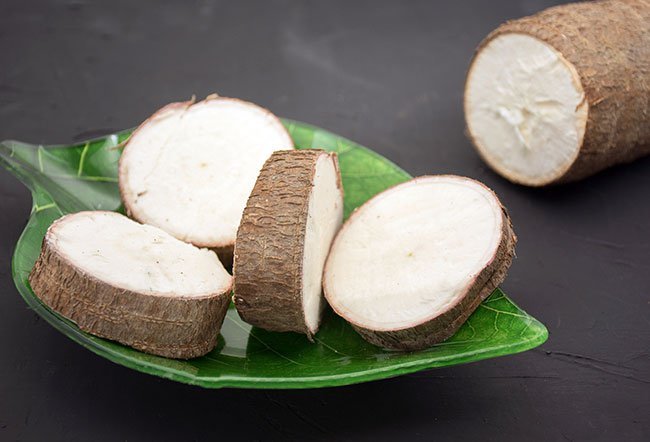Can You Eat Yucca?
Yucca uses and nutrition

Yucca can be cooked and eaten. However, yucca flowers may be eaten raw because they have a mild sweet taste. Most people prefer boiling yucca flowers and adding them to soups and stews. However, it is recommended to eat yucca only after cooking because some parts of the plant, especially the sap, are mildly toxic to humans. Moreover, red yucca should not be consumed because it is not edible and considered poisonous.
Yucca tastes delicious when it is baked, boiled or fried. After cooking, yucca usually tastes like a potato. Depending on the species, the consumable parts of yucca may include
- Root
- Seeds
- Blossoms
- Flowering stems
- Purplish yucca fruits
Stems, leaf bases, flowers, emerging stalks and fruits of most types of yucca are edible.
The common benefits of intermittently including yucca in your diet include
- Yucca is high in vitamins C, B and A. It is also high in calcium, phosphorus, potassium and iron. It is higher in fiber and potassium than a potato.
- The high amount of vitamin C and antioxidants present in the plant also boost the immune system and overall health, protecting us from cell mutations (that may lead to diseases such as cancer) and free radical damage.
- Yucca can be beneficial to people with arthritis and rheumatism because it has a high content of steroid saponins that are precursors to cortisone and act as anti-inflammatory molecules.
- Diuretics (medicines to increase your urine output) and emetics (medicines that make you vomit, given in certain conditions such as poisoning) are commonly made from both the root and leaves of yucca.
- Yucca root and bark have also long been used as traditional medicines. The root of the non-flowering plant is used to make medicine. Yucca is useful to people with osteoarthritis, high blood pressure, migraine headaches, colitis (inflammation of the intestine), high cholesterol, stomach disorders, diabetes and liver and gallbladder disorders.
- The stems or trunks of yucca store carbohydrates that may be cooked or boiled and then consumed.
- Yucca is a good source of nutrients, vitamins and minerals. Consuming 3.7 ounces of yucca offers
- 27.21 g of total fat
- 72.69 g of carbohydrate
- 311 mg of sodium
- 2.92 mg of vitamin E
- 911 mg of potassium
- 0.934 mg of vitamin B5
- 104 mg of phosphorus
- 0.121 mg of copper
- 0.296 mg of manganese
- 48 mg of magnesium
- 0.137 mg of vitamin B6
- Traditionally, 380 to 490 mg of powdered yucca stalk or root two to three times daily is usually recommended for consumption.
Other uses
- Yucca can also be used to make an all natural shampoo and soap that is delicate on the skin and contributes to healing rashes and minor scratches.
- The green, sword-like leaves of yucca are loaded with fiber that may be used for making cord and ropes.
- Chop the top off the plant, dig up the root and crush a few pieces of yucca root in water to make a cleanser that smells like potatoes.
- Once these stalks turn from green to grey in late summer, straight sections can be cut and used for fire-making.
- Native Americans ferment the fruits to produce a beverage for rituals.
- Furthermore, when placed indoors, yucca has notable air-cleaning properties and can remove toxins from the air.
Risks
- Yucca, although one of the most consumed carbohydrates worldwide, is dangerously toxic when consumed raw because it contains cyanogenic glucosides that trigger the release of hydrogen cyanide.
- The root of Yucca constricta (Buckley's yucca) contains saponins that, although toxic to humans, are usually poorly absorbed and therefore do not usually cause irritation unless you are sensitive or allergic to them.
- Common side effects of yucca include
- Stomach upset
- Bitter taste
- Nausea
- Vomiting
- Loose stools (high doses)
To avoid undesirable interactions, take advice from a doctor if you are using or intend to use yucca for medical purposes. Due to the lack of safety research, yucca supplements should not be used in children, pregnant women or nursing mothers.
